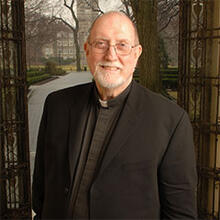Forming Bonds
Ahmeds perspective on Islam in the contemporary world reflects his own origins in the subcontinent. He characterizes all modern Muslimsnot just those indigenous to India, Pakistan and Bangladeshas belonging to one of three tendencies, each of them called after one of three major Muslim schools in India. Ajmer, the geographical center in contemporary India of the Chistiyya Muslim mystical confraternity, becomes in Ahmeds hands a term for characterizing mystically inclined Muslims anywhere in the world. Thus, talking about West African Islamic history, Ahmed writes that Sufis of the Ajmer model...were instrumental in Nigerian trade for hundreds of years. By this he means that the mystical confraternities emanating from northwestern Africa, people who probably never heard of Ajmer in India, played important roles along trade routes in the development of centralizing states and the Islamizing of West Africans in those states. These processes went on for several centuries before the colonial era and the creation of modern states like Nigeria.
The second major Islamic tendency Ahmed characterizes in terms of an Indian school derives from the rigorist, anti-Sufi madrasa located at Deoband in India. The so-called Wahhabis of Saudi Arabia (they think of themselves as Muwahhidun, proponents of the absolute unity of God), the members of the Muslim Brothers in Egypt and elsewhere in the Arab Middle East, as well as the Hamas militants currently dominant in Gaza, are all characterized by Ahmed as belonging to the Deoband type. These movements in the central Arab world might possibly see the links between themselves as Islamic rigorists, but they would be surprised to find out that they likewise belong to the Deoband type. It is true, however, that the Egyptian rigorist Sayyid Qutb, hanged by the Nasser government in Egypt in 1966 and thereby made a martyr for subsequent generations of Muslims resentful of secularizing governments, had studied in English translation the voluminous writings of the Indo-Pakistani Islamist scholar, Maulana Maududi (d. 1979).
More akin to Ahmeds own orientation are the Indian and Pakistani Muslims who trace their intellectual ancestry to Aligarh, the Muslim university in India, an institution founded in the 19th century by Sir Sayyed Ahmad Khan as the Muhammadan Anglo-Oriental College. Left high and dry in India 60 years ago, Aligarh Muslim University, as it is called today, has current students who surprised Ahmeds student interviewers by their hostility to Americans and the admiration they felt for Muslims of very Deoband tendencies, among them Osama bin Laden and Mahmoud Ahmadinejad, president of Iran. But it is more likely that these students were reacting to the hubris of American college students asking them in English to fill out questionnaires.
Scant attention is paid to Muslims in Africa in this book, even though Ahmed admits that one quarter of the worlds Muslims live in that continent. One of Ahmeds student assistants made a brief visit to East Africa, where he came up with the idea that Somali Muslims, whom he met as refugees in Kenya, still adhered to the inclusive spirit of Ajmer, but Somalia itself is a good example of the appeal of Deoband. This sort of impressionistic journalism diverts attention from understanding the uniqueness of Islam, a faith tradition with no central religious authority, in different parts of the world. It is laughable that the late military dictator of Nigeria, General Sani Abacha, is said to have belonged to a group of Aligarh-like Muslims; it is also claimed that his dictatorship fell in 1999, a year after Abachas death of a heart attack in embarrassing circumstances in 1998. In fact, Abachas military successor, also corrupt but not quite so thuggish, handed over power in 1999 to an elected president, a Christian, who rigged the next two democratic elections in Nigeria, in 2003 and 2007.
Throughout the book there are many photographs of Ahmed and his undergraduate student researchers meeting famous people, and the author is not reluctant to tell us about the awards he has received in the United States for promoting interreligious dialogue. Journey Into Islam might prove useful for introducing undergraduates to the study of Islam in south Asia, but it is not, despite its subtitle, a major contribution to understanding what is really going on in the Islamic world more generally.
This article also appeared in print, under the headline “Forming Bonds,” in the December 3, 2007, issue.








